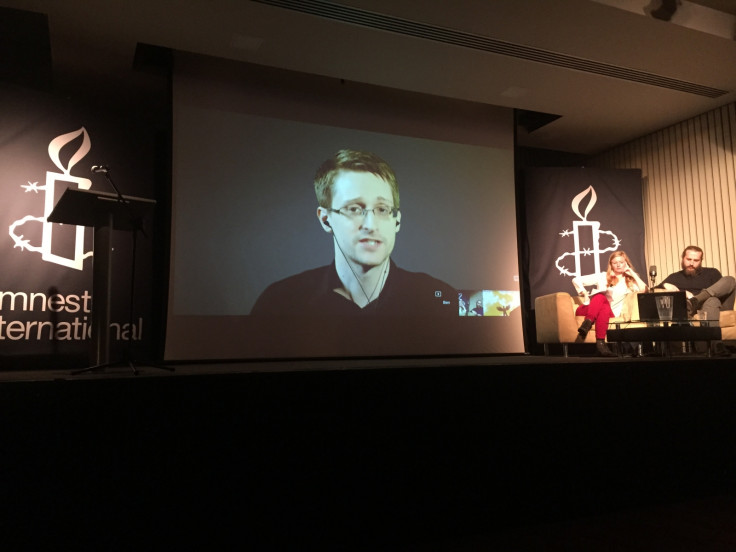Edward Snowden: I burned my life to the ground but I'm happier today than ever

NSA whistleblower Edward Snowden says he wakes up every morning with a smile on his face and has more hope for the future now than ever before - despite admitting he "burned his life to the ground."
Speaking during a question and answer session at Amnesty International London (via video link), Snowden, 31, said blowing the whistle on the US National Security Agency and exposing it as an Orwellian spying outfit was liberating. Snowden also said the two years since he leaked top secret NSA documents to the press has been "an incredible experience."
Addressing an audience of several hundred, plus thousands more watching online, the former NSA contractor said: "The most liberating thing about burning your life to the ground and becoming an international fugitive is that you no longer have to worry about tomorrow, you just think about today, and for me that's been an incredible experience and I'm actually grateful for it."
Just an hour after ending the video call, US Congress passed a bill to end the NSA's mass collection of Americans' phone records - a direct result of Snowden's actions.
Snowden also spoke at length about the programmes the NSA and its British counterpart GCHQ used to spy on millions of their own citizens. He explained how, although they only captured metadata (who you called, when, where and for how long, not the call recording itself), they were able to gain a very clear understanding of the lives of anyone they targeted, no matter if they were considered a threat or not.
But he added that, because government agencies collected data in bulk, they were unable to find genuine threats, such as those behind the Boston marathon bombing. "If we collect everything, we understand nothing," Snowden said.
'I gotta say, life is good'
Snowden, who is believed to be living in Russia with his girlfriend Lindsey Mills, said leaking the documents, fleeing to Hong Kong, then settling in Russia after gaining political asylum there, made him "look at life in a completely different way and focus on what I can do opposed to what I might be able to do in five or 10 years' time."
He went on: I have applied for asylum in 21 different countries across the world - including western Europe - and I'm still waiting on all of them to get back to me [audience laughs]. But I have more hope today than I ever had before. I wake up every morning with a smile on my face - I gotta say, life is good."
You can watch the full interview here:
© Copyright IBTimes 2024. All rights reserved.






